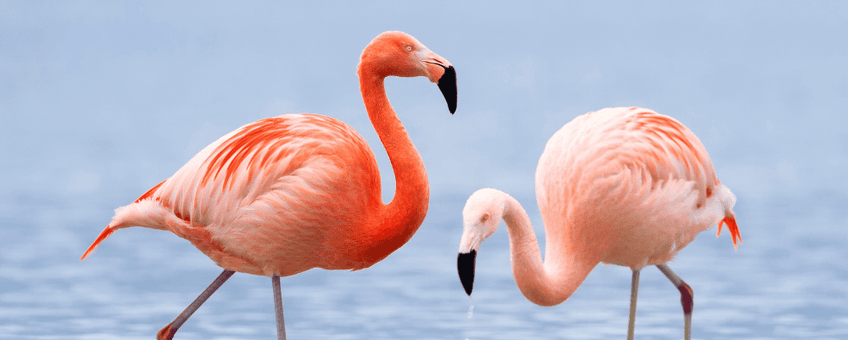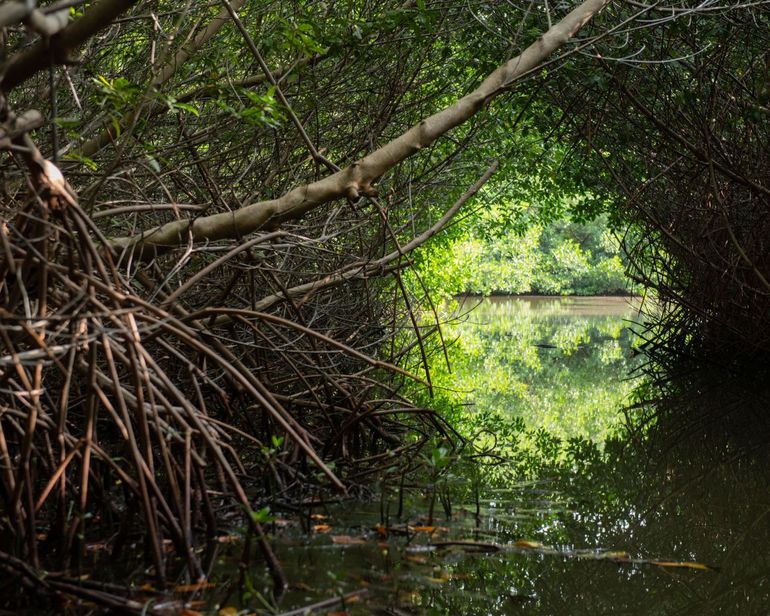
Exploring the transformative power of nature-based solutions with IUCN’s Charles Karangwa
Dutch Caribbean Nature Alliance (DCNA)On November 10th, the Dutch Caribbean Nature Alliance (DCNA) and Fundacion Parke Nacional Aruba (FPNA) hosted a symposium about Nature-Based Solution for Ecosystem Restoration. The goal was to facilitate knowledge and experience exchange and to promote the effective incorporation of nature-based solutions in Dutch Caribbean projects.
Nature-based solutions
Nature-based solutions (NBS) are all about using the extraordinary capabilities built into natural ecosystems to address difficult global challenges. Imagine harnessing the incredible abilities of ecosystems, like forests, wetlands, and coral reefs, to tackle the challenges the planet faces. That's the essence of NBS – it's not about reinventing the wheel; it's about realizing that (when healthy) these ecosystems are incredibly powerful and resilient.
So, why are NBS so important? Well, for starters, they're the ultimate multitaskers. These solutions not only help the environment but also bring a lot of benefits to humans. Take a mangrove forest, for example. Not only is it a thriving ecosystem; it's a shield that protects coastal areas from storms, provides a habitat for diverse marine life, and even has the ability to capture carbon (important in minimizing further negative impacts of greenhouse gas emissions).

IUCN
The first presentation of the nature-based solutions symposium was delivered by Charles Karangwa, Global Head of nature-based solutions for the International Union for Conservation of Nature (IUCN). Karangwa underscored the evolution of Nature-based solutions as a concept, emphasizing that its adoption has been built on decades of hard work. He highlighted the transformative potential of NBS in energizing future sustainable development, suggesting that this approach could serve as a pivotal force in addressing environmental challenges and positive change on a global scale.
Learn more about NBS
 In a world where climate change is continuously creating new challenges, NBS give local ecosystems the best chance to adapt and thrive. They're like nature's blueprint for sustainable living, showing us how to build resilient communities and safeguard biodiversity. So, let's work with nature, not against it, and unlock a future that's not just green, but thriving. Curious to learn more? Over the next few weeks, we will continue to deep dive into the topics presented during the NBS-symposium.
In a world where climate change is continuously creating new challenges, NBS give local ecosystems the best chance to adapt and thrive. They're like nature's blueprint for sustainable living, showing us how to build resilient communities and safeguard biodiversity. So, let's work with nature, not against it, and unlock a future that's not just green, but thriving. Curious to learn more? Over the next few weeks, we will continue to deep dive into the topics presented during the NBS-symposium.
To watch the full video of Mr. Karangwa presentation, please see below:
Presentation by Charles Karangwa (IUCN) (Source: DCNA)
Videos of the other presentations will be shared with you weekly. If you can't wait, (re-)watch the recording of the symposium on the DCNA YouTube channel.
DCNA
DCNA extended its gratitude toward the sponsors; Milton Harms Fonds in collaboration with Prins Bernhard Cultuurfonds Caribisch Gebied, Aruba Tourism Authority, VNO Ministerie van Binnenlandse Zaken en Koninkrijksrelaties, Grant Thornton, Dutch Postcode Lottery and Pelican Adventure for contributing to the symposium and supporting an environment of collaboration and progress, exemplifying the power of partnership in driving positive ecological change.
The Dutch Caribbean Nature Alliance (DCNA) was established in 2005 and represents a quintessentially Caribbean approach to nature conservation. In a highly fragmented region, the DCNA recognizes that the conservation challenges are simply too big for one organization or one island to face alone. On Aruba, Bonaire, Curaçao, Saba, St. Eustatius, and St. Maarten this truth was acknowledged and in response, the DCNA was formed, an organization with a singular voice to reflect a united effort to safeguard nature throughout the region. The DCNA believes that together we will be better able to find solutions to face these common threats. Built from the bottom up, the DCNA is a true grassroots organization, which has been able to weave together an active conservation network of autonomous organizations spanning the Dutch Caribbean.
Learn more about the DCNA by following the DCNA on social media via Facebook (Dutch Caribbean Nature Alliance), Instagram (DCNAnature), LinkedIn (Dutch Caribbean Nature Alliance) and visiting the website.
Text: Dutch Caribbean Nature Alliance
Images: Hans Smulders; IUCN; DCNA
